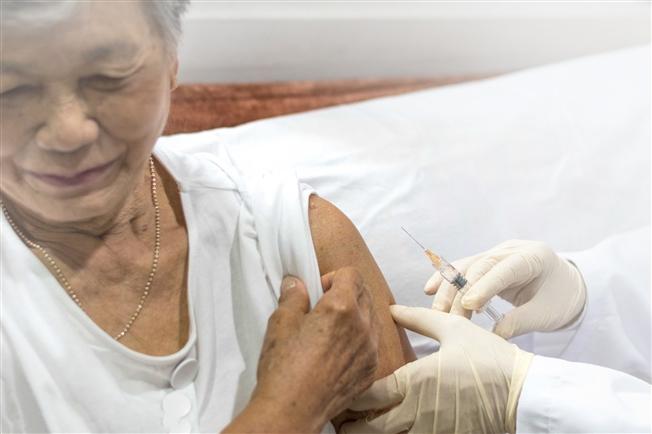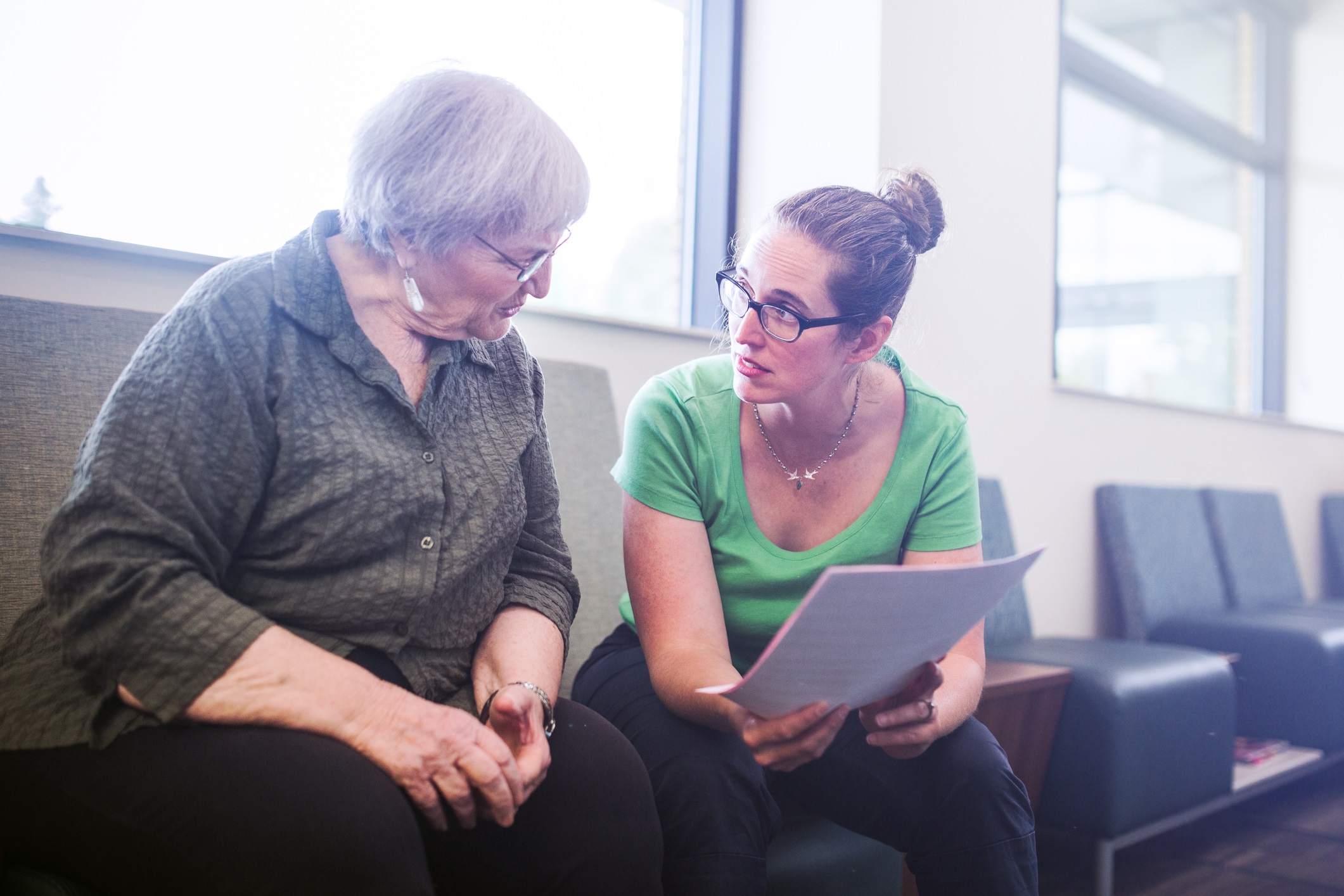Do you know what vaccines seniors should get?

Every year people look to their health care providers to find out "What's new with the flu?" And for the older adult population, what vaccines seniors should get—whether it's a Fluzone High-Dose influenza vaccine or the latest, greatest shingles vaccination. Manjit Singh, MD, a geriatrician at Main Line Health offers some guidance on the flu vaccine and others as we head into flu season once again.

Fluzone high-dose vs. standard flu vaccine
"All the new information about what kind of flu shot to get can be confusing and overwhelming for patients," says Dr. Singh.
Take, for example, the Fluzone High-Dose vaccine which is designed specifically for people 65 and older. The vaccine has four times the antigen—which is what helps your body protect itself from flu viruses—compared to the standard flu vaccine. As people get older, generally after the age of 50, the immune system begins to naturally decline and weaken, becoming more susceptible to flu and other illnesses. The standard flu vaccine is simply not as effective in people over 65 years of age, which is why this high-dose vaccine is recommended for people in this age group.
The Fluzone High-Dose has become more widely available but may not always be what's on hand at the doctor's office or pharmacy. This leads some patients and caregivers to wonder if they should go ahead and get a standard flu vaccine or wait until the high dose is available.
Singh clears things up, emphasizing, "It's absolutely critical, especially for older adults, to get any flu vaccine—even if the high dose is not available—as early in the flu season as possible. Any protection is better than none because the influenza virus can be so debilitating for older people, putting them at further risk of pneumonia."
Because children are the main transmitters of flu, getting kids vaccinated for flu as early as possible can help reduce flu infection in older people.
When exactly is "early in the flu season?"
Usually this means before Thanksgiving but Singh tells his patients it's never too late to get a flu shot, even in February! Also, because children are the main transmitters of flu, getting kids vaccinated for flu as early as possible, can help reduce flu infection in older people.
Since you have to think about the flu vaccine every year, it's a good time to assess other vaccines seniors should get, like pneumococcal, Tdap and shingles. Your doctor can help you determine which ones you may or may not need depending on certain health conditions.
This short animated film from the Alliance for Aging Research reminds older adults of the importance of ongoing vaccination for certain diseases for their own health and the protection of others in their community.
Pneumonia shots: One or two?
The Centers for Disease Control continues to recommend two pneumonia shots for people over 65 years of age:
- PCV15 (protects against 15 strains of pneumococcal bacteria)
And
- PPSV23 (protects against 23 strains of pneumococcal bacteria)
Or
- Single dose of PCV20
If you already have had one dose of any pneumonia vaccines, please discuss with your primary physician regarding which would be appropriate for you.
These two pneumonia vaccines also provide protection from meningitis and bacteremia.
Here is the latest CDC guidance on pneumonia vaccines for senior adults.
Time for Tdap? Booster shot for childhood DTaP
It might be time for a tetanus, diphtheria, pertussis (Tdap, Td) booster if you're older than 65 and the following conditions apply:
- You never got the booster for childhood DTaP when you were a teenager or as an adult
- You had the Tdap 10 or more years ago
"This is one of those vaccines seniors should get that people often skip," says Singh. "Yet it's really important because we've seen such an increase in whooping cough (pertussis) in babies, mostly due to transmittal between infants and elders who aren't up to date on the booster."
Shingles vaccine most effective it's ever been
Shingles is another condition people become more susceptible to with age. It is caused by the same virus as chicken pox (herpes zoster) and it can reactivate in the body years after you've had chicken pox, causing a painful red rash. For those with more severely compromised immune systems, the condition can cause complications and lead to hospitalization.
Whether or not you have had chicken pox, you are still at risk of shingles. In fact, one in three Americans is likely to get shingles in their lifetime. It's also possible to get shingles more than once. The latest shingles vaccine, however, has shown to be more than 97 percent effective in preventing shingles in people who are 50 years or older. This is compared to the existing vaccine which has an effectiveness rate of about 50 percent.
Measles booster may be in order for some seniors
If you were born before 1957, you are considered immune to the measles, according the CDC. However, certain people, such as health care workers and those traveling internationally, may benefit from a measles, mumps rubella (MMR) booster.

If you were born after 1957 and you do not have proof of immunization against measles, you should get the MMR vaccine or an MMR booster shot. Some people who received the measles vaccine between 1963 and 1967 should also get the vaccine again because the vaccination received is no longer used. Your health care provider can answer any questions you may have about whether to get vaccinated or—in some cases—revaccinated.
"Vaccinations are a proven and safe way to prevent disease," Singh adds. "They protect you as an individual and also protect your loved ones by decreasing transmission to those with weak immune systems. Not getting vaccinated can have very serious and potentially fatal consequences. Please take the time to protect yourself and keep your vaccinations up to date."
Depending on whether you have certain chronic health conditions or have been exposed to diseases, you may need additional vaccinations.
Medicare coverage of vaccines seniors should get
Many recommended vaccines for seniors are covered by Medicare at no cost to you or at very little cost. Your cost may vary depending on how your coverage is provided, what vaccine it is, and whether the provider accepts Medicare. Get all the details at Medicare.gov.
Recommended vaccines for people over 65
| Vaccine type | Protects against | Dosage |
| Influenza (flu) vaccine | The common cold-weather infection that causes fever, chills, cough, muscle aches, and headaches | Every year (annually) |
| Pneumococcal (pneumonia) vaccine | Blood, brain and lung infections like pneumonia and meningitis | PPSV23 (Pneumovax 23) and PCV13 (Prevnar 13); depending on personal health history, the number of doses for vaccine varies; talk to your physician about whether or not you'll need a booster after initial vaccination |
| Tdap (tetanus, diphtheria, pertussis) vaccine and/or the Td (tetanus, diphtheria) booster | Tetanus, a bacterial disease that enters through a wound or cut that affects brain and nervous system Diphtheria, a contagious bacterial disease that causes heart and nerve damage and makes it difficult to breathe Pertussis or whooping cough, a contagious respiratory infection that causes difficulty breathing and a loud "whoop" sound; particularly dangerous for infants |
Initial vaccination; Tdap booster as adult; every 10 years after that |
| Shingles (herpes zoster) vaccine | Shingles (painful rash caused by same virus that causes chicken pox) | One-time vaccination (series of two shots) |
| Measles booster | Measles, mumps, rubella (MMR), all highly contagious viral diseases that can lead to more severe and even fatal conditions | One-time booster shot |